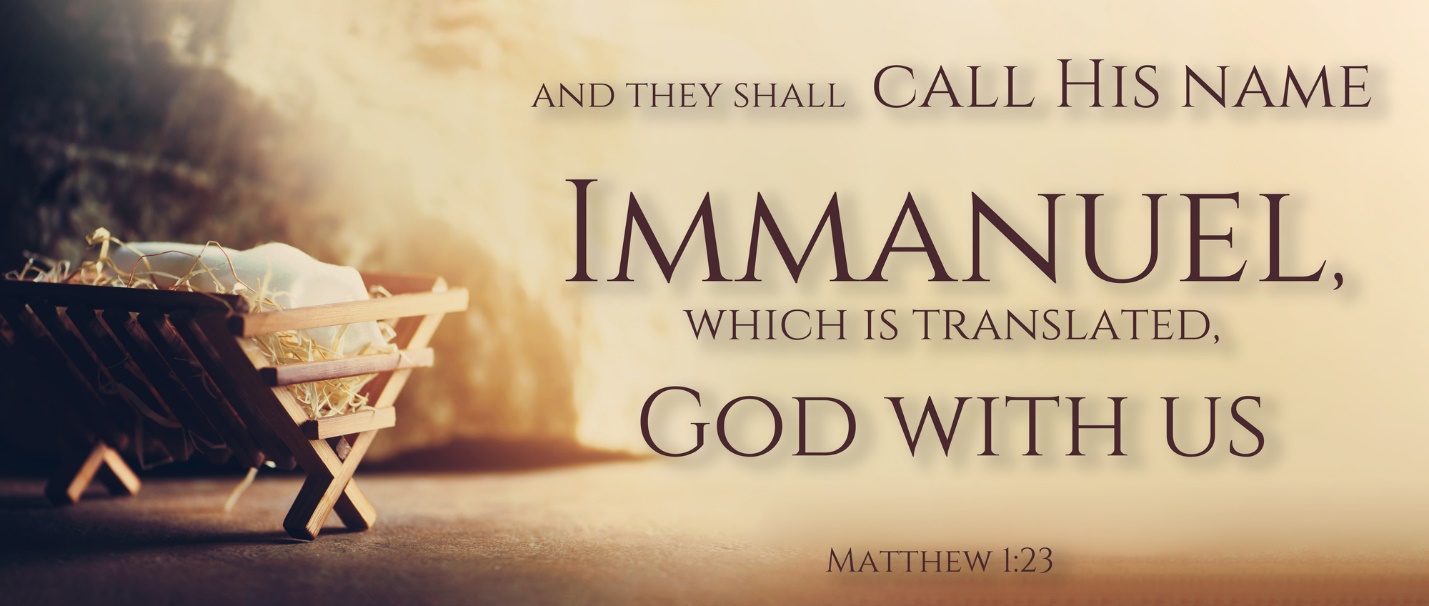BP 197
Many of us are familiar with mental illness and its manifestation in different diagnoses ranging from depression to anxiety to bipolar disorder to personality disorders. But do we know that all these psychological disorders–just like physical disorders that are a result of sin and death flowing from original sin–come to us because of our separation from God and can only be fully healed by being with God?

Today we are going to briefly look at a specific type of anxiety that the Diagnostic and Statistical Manual V labels “Separation Anxiety Disorder,” and attempt to understand how this disorder flows from separation not simply from an earthly parent but from the heavenly parent. In a very real sense, all of us suffer from a universal Separation Anxiety Disorder that is not just about earthly relationships with mothers and fathers but about the spiritual relationship with our eternal, heavenly Father (Abba).
To begin, what is separation anxiety psychologically speaking? In the developmental journey of the baby and young child, separation anxiety occurs naturally and predictably in the second half of the child’s first year on this planet. At least, that’s the way developmental psychologists refer to it, namely, a naturally occurring dynamic. This normal separation anxiety can linger until around three years of age at which time the well-adjusted child grows out of it due to healthy confidence in the area of separation and individuation (being a separate self apart from the attachment figure).
At the core of the child’s capacity to grow past “natural” separation anxiety is a developed belief based on experience. The belief is that the attachment figure (usually the parent(s)) will continue to exist and will return when he or she separates from the child for as short a duration as going into the kitchen or for a longer time such as going on a vacation without the young child.
So, then, “natural” separation anxiety is viewed as a period that the child will eventually leave behind with healthy development.
Attachment theorists assert that the primary ingredient in the child’s healthy resolution of this early separation anxiety phase is a phenomenon known as “secure attachment.” If secure attachment with the primary parental figure does not occur, the young child will begin to experience “abnormal” separation anxiety disorder, a specific psychological diagnosis for a child or adult who experiences symptoms that point to acute anxiety related to parting or separation from the parent.

Before we dive more into secure attachment, let’s fly over some of the symptoms of separation anxiety disorder according to the Mayo Clinic:
- Recurrent and excessive distress about anticipating or being away from home or loved ones
- Constant, excessive worry about losing a parent or other loved one to an illness or a disaster
- Constant worry that something bad will happen, such as being lost or kidnapped, causing separation from parents or other loved ones
- Refusing to be away from home because of fear of separation
- Not wanting to be home alone and without a parent or other loved one in the house
- Reluctance or refusing to sleep away from home without a parent or other loved one nearby
- Repeated nightmares about separation
- Frequent complaints of headaches, stomachaches or other symptoms when separation from a parent or other loved one is anticipated
These symptoms can be devastating for a child (or an adult) and can later manifest in other anxiety disorders such as panic, generalized anxiety, OCD, etc. Some individuals even view Separation Anxiety Disorder as a “gateway” anxiety that may never be diagnosed in childhood but will manifest in other ways as the child moves into adulthood.
So how can these intense symptoms related to fear of separation from the parent be avoided?
At the core of secure attachment, according to attachment theorists and my interpretation of the theory, is the essential presence of a caring and reliable parent (or parental figure such as a grandparent, a respected authority figure, or possibly even a therapist) who will not be perfect but will be a “good enough” presence for the child to develop trust in through repeated experiences of the figure’s faithfulness to the child. (Faithfulness is my word.)
Here we are encountering once again a core concept of Designer Therapy for Life, namely “presence.”
There are many ingredients to “presence” in the life of a young child. Five of these ingredients required in the parent for the child’s healthy development of attachment are safety, predictability, healthy discipline (administered for the child’s growth, not to shame him), the ability to celebrate the child (“I take great delight in you”) and an advanced awareness of the child’s self—knowing who she is, what she needs, how to read her physical and emotional needs, when to hold her physically and, more importantly, emotionally.
A child who experiences the presence of a trusting parent through repeated experiences that incorporate the five ingredients above, will usually move past the normal separation anxiety phase and will avoid separation anxiety disorder. Children who may move into unhealthy separation anxiety disorder are those who may experience the loss of a parent through an event such as death or divorce (a form of psychological death), the emotional absence of the parent who is not able to provide the five ingredients mentioned above, or might even have a parent who is rejecting of the child due to transference or projection (e.g., you remind me of my angry mother, or you are the bad one, not me).

Children with these types of parents will not have a fertile environment in which to develop trust and attachment. Instead, they will experience an emotional scarcity that may develop an underlying anxiety that pervades their young self.
Because the securely attached child has experienced intentional and reliable (not perfect but “good enough”) and caring presence, he will not only internalize a belief that “the world” (people) is trustworthy but also an expectation that he should be loved, seen, and known by others as he grows into an adult. One can see the importance of the child having a secure attachment with the first people in life because she will then take that early attachment model and form a view of others and herself that she will carry into future relationships. She will not settle for unloving, untrustworthy, neglectful relationships but will expect the healthy relationships she has experienced in the past.
The main point of today’s post is that humans are wired to experience relationships with parents, other authority figures, friends, and spouses that are built on healthy presence, trust, reliability, and love. If we do not experience a trustworthy and present parent when we are young, we are more likely to develop an insecure attachment relative to other humans (and God). We will develop an internal expectation of harm or absence and so we will be cautious or blatantly untrusting of the world or we may settle for chaotic and unloving relationships because they are familiar to us from our childhood years.
I wish to go further and say that we are created for trusting relationships and that if we don’t experience them, we will be anxious because deep inside we know that something is wrong, off. The very foundation of relationships is built on the character of a loving, perfectly reliable heavenly Triune God. Talk about a person to be securely attached to and to trust.
The Father in this holy Trinity is defined as love in 1 John 4:7-11: “Beloved, let us love one another, for love is from God, and whoever loves has been born of God and knows God. Anyone who does not love does not know God, because God is love. In this the love of God was made manifest among us, that God sent his only Son into the world, so that we might live through him. In this is love, not that we have loved God but that he loved us and sent his Son to be the propitiation for our sins. Beloved, if God so loved us, we also ought to love one another.”
How amazing to know that the God of the Bible is not only the author of love but His deepest being is love! Such a loving God could be a great antidote for Separation Anxiety Disorder even though He may lead us to trust Him by trusting a reliable human first.
The Son says in John 17:25-26, “O righteous Father, even though the world does not know you, I know you, and these know that you have sent me. I made known to them your name, and I will continue to make it known, that the love with which you have loved me may be in them, and I in them.”
In the Son, the love of the Triune God is in us. More than that, Jesus says that He is in us. What an amazing attachment we can form over time (through repeated experiences of presence that build trust) when God Himself abides within us.
We could do a whole other blog post on abiding in Jesus as seen in John 15! The experience of abiding is the definition of secure attachment in my mind. Pursuing the presence of Jesus delivers us from anxiety and establishes trust in us. Pursuing God is abiding and abiding is practicing presence.

But always remember: Abiding and experiencing presence will always be opposed in this world, both with God and others, so don’t give up even when you encounter stiff opposition to trust and attachment. There is a universal dark presence who hates love, intimacy, trust, forgiveness, and reconciliation and will always attempt to separate you from presence. Also remember that the opposer is overmatched by the eternal God.
The third person of the Trinity, the Holy Spirit, is a huge presence when it comes to secure attachment. Romans 15:13 says, “May the God of hope fill you with all joy and peace in believing, so that by the power of the Holy Spirit you may abound in hope.”
The Holy Spirit is integral to secure attachment. How important are joy, peace, and hope in the journey toward trusting someone—especially the God who created you.
Jesus Himself says about the Holy Spirit in John 14:16-17, “And I will ask the Father, and he will give you another Helper, to be with you forever, even the Spirit of truth, whom the world cannot receive, because it neither sees him nor knows him. You know him, for he dwells with you and will be in you.”
What an amazing truth about the Holy Spirit, namely, that He will be with you. Forever. And He will be in you just as we read above about Jesus!
How important, how essential, how absolutely primary is a relationship with the Triune God in the journey toward experiencing a trusting presence who will love you, be with you, and be in you! All these intimate experiences with God are the bedrock of secure attachment and the primary factor that can help in the prevention or the healing of Separation Anxiety Disorder. Of course, as alluded to above, a human may need to be a trustworthy bridge to help you move toward the invisible God.
So much could be said in conclusion! For example, parents, pastors, and teachers, be very diligent to present the Triune God as holy, yes, and hating sin, yes, but also as inviting, loving, initiating, and yearning (Jeremiah 31:20). Be sure to clarify that He is love and was motivated by His loving and yearning heart to send us Son so that we might have free access to the perfect Father God. Do not add anything to the Gospel of Jesus Christ that will serve as a stumbling block to approaching His presence.
Be sure to speak Hebrews 4:15-16 into every child’s heart: “For we do not have a high priest who is unable to sympathize with our weaknesses, but one who in every respect has been tempted as we are, yet without sin. Let us then with confidence draw near to the throne of grace, that we may receive mercy and find grace to help in time of need.”

Absolutely, teach your child the sovereignty and “otherness” of God, but never exclude the truth that God condescended to us and put on our skin at the Incarnation. He came to sit with us in the dust and brokenness of this fallen world:
“For thus says the One who is high and lifted up,
who inhabits eternity, whose name is Holy:
‘I dwell in the high and holy place,
and also with him who is of a contrite and lowly spirit,
to revive the spirit of the lowly,
and to revive the heart of the contrite.’”
Mothers and fathers and grandparents and all other parental figures are designed to be on this planet to help communicate two things to the vulnerable child: First, that people are capable of loving him or her, and secondly, that he or she is lovable despite sin, the flesh, and a rebellious spirit.
The truth is that you were made to be with God in an intimate, loving relationship.
The interfering problem is that you came into the world spiritually alienated from the God who is love due to your sin and your “attitude” toward Him. Romans 8:7 says, “For the mind that is set on the flesh is hostile to God, for it does not submit to God’s law; indeed, it cannot.”
The consequence is that all of us are separated from our heavenly parent and will experience a dreadful anxiety because of that. I believe all anxiety has some roots in being alone in the universe. Many of us cover up that anxiety or assume it is always simply psychological in origin. But no, the most powerful ingredient for anxiety in general and for Separation Anxiety Disorder in specific is our status of being separated from our heavenly Father.
The solution is to seek Him with all your heart, to run toward Him as the lost son or daughter, to set your minds on things that are above instead of earthly things, to receive love from God and then return it to Him and others. He is already seeking you. Don’t hesitate to ask for help if something you can’t quite put a finger on is keeping you from attaining a secure attachment with your loving Father.
So, don’t settle for insecure attachment, fundamental distrust, or for Separation Anxiety Disorder. You were not created for these.
No, never settle for less than what God has created for you. Instead of suffering with the anxiety of being alone in the universe, hold out for the joy and singing that comes with Presence and the secure attachment that depends on the faithful and loving character of the eternal, almighty God.
He desires to be with you.
“Sing for joy, O heavens, and exult, O earth;
break forth, O mountains, into singing!
For the Lord has comforted his people
and will have compassion on his afflicted.
But Zion said, “The Lord has forsaken me;
my Lord has forgotten me.”
“Can a woman forget her nursing child,
that she should have no compassion on the son of her womb?
Even these may forget,
yet I will not forget you.
Behold, I have engraved you on the palms of my hands;
your walls are continually before me” ~ Isaiah 49:13-16

